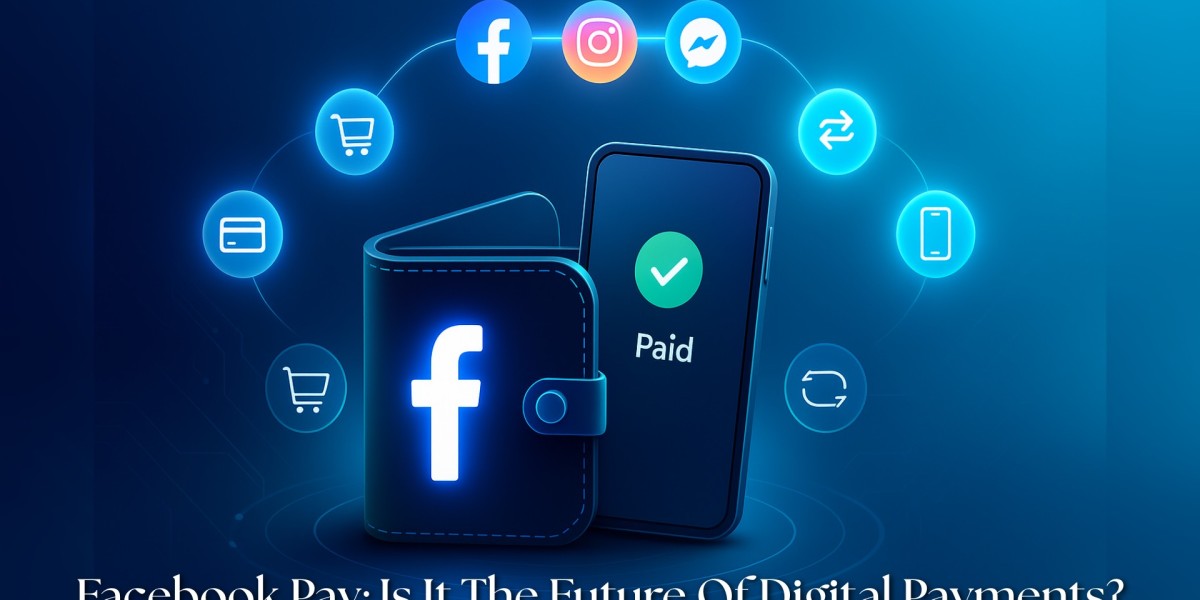Have you ever wondered if social platforms could replace your wallet? With the rise of Facebook Pay, that question is becoming more relevant. From sending money to friends to shopping within apps, Facebook has streamlined payments into its ecosystem. But how does it work, and why does it matter for everyday users?
What Is Facebook Pay?
Facebook's payment system is integrated into Facebook, Messenger, Instagram, and WhatsApp. It enables users to transfer money, shop, and contribute to causes all within the app itself. Unlike standalone wallets, it’s embedded into the platforms you already use daily.
The key advantages include:
Convenience: No need to switch apps to complete a payment.
Integration: Works across Facebook-owned platforms.
Accessibility: Available in multiple countries and expanding steadily.
Security: Uses encryption, fraud monitoring, and PIN/biometric authentication.
How Does Facebook Pay Work?
Using Facebook Payment is straightforward:
Access Settings: Go to the settings menu within Facebook, Instagram, or WhatsApp.
Add Payment Method: Link a debit card, credit card, or PayPal account.
Choose Transactions: Select whether you want to send money to friends, shop from businesses, or make donations.
Verify Identity: Complete the process using a PIN, fingerprint, or facial recognition.
This process ensures that transactions remain secure while keeping the user experience seamless.
Why Use Facebook Pay Over Other Payment Apps?
Several payment platforms already exist, such as Google Pay, Apple Pay, PayPal, and more. So why consider this option?
Integrated Social Shopping: You can purchase directly from Instagram Shops or Facebook Marketplace alternative without leaving the platform.
Familiarity: Since billions already use Facebook apps daily, adoption feels natural.
Global Potential: With WhatsApp dominating messaging in many countries, the built-in payment function could make cross-border payments more accessible.
No Extra Fees: Sending money to friends and family is typically free, which adds to its appeal.
Is Facebook Pay Safe?
Security is one of the most common concerns. Facebook has taken steps to protect users by offering:
End-to-end encryption on messages containing payment details.
Purchase protection policies for select transactions.
Real-time monitoring to detect suspicious activity.
Additionally, users can add multiple layers of authentication to prevent unauthorized access.
Where Can You Use Facebook Pay?
Currently, Facebook Payment supports:
Person-to-Person Transfers: Easily send or receive money with friends and family through Messenger or WhatsApp.
Seamless Online Shopping: Buy products effortlessly from Facebook or Instagram Shops without leaving the app.
Donations: Contribute to fundraisers and charitable causes seamlessly.
In-app Purchases: Buy event tickets, games, or digital goods without leaving the app.
Its availability varies by country, but expansion continues as Facebook negotiates with global partners and regulators.
The Benefits for Businesses
For businesses, especially small to medium-sized ones, Facebook Payment simplifies transactions:
Instant Checkout: Customers don’t need to exit the platform.
Trust Factor: Integrated payment builds credibility.
Cross-platform Reach: Businesses on Instagram and Facebook can unify sales channels.
Lower Barriers: Customers already using social media can pay without hesitation.
By reducing friction in the buyer journey, businesses can significantly improve conversion rates. Combined with smart practices like Facebook SEO, which enhances visibility and engagement, this integrated approach gives brands a competitive edge in the crowded digital marketplace.
Challenges and Concerns
Despite its convenience, some hurdles exist:
Privacy Concerns: Facebook’s history with data handling makes users cautious.
Competition: Established players like PayPal and Apple Pay hold strong positions.
Regulatory Issues: Payment systems face strict compliance requirements, which may slow global rollout.
These factors mean that while promising, the platform must continue building trust and transparency.
Future of Facebook Pay
As digital commerce grows, social platforms are becoming payment hubs. With Meta’s vision of creating interconnected ecosystems, Facebook Pay could become central to online shopping, peer transfers, and even future metaverse transactions.
The real question isn’t whether social media will play a role in payments, it's how big that role will become.
You can also watch: How To Auto Withdraw Sent Requests On Facebook using Socinator
Summary
Facebook Pay offers a convenient, secure, and integrated way to manage transactions across Facebook, Instagram, and WhatsApp. While privacy concerns remain, its potential for global adoption and business integration makes it a strong contender in the future of digital payments.
FAQs
1. Can I use Facebook Pay internationally?
Yes, but availability depends on your country and local regulations. It’s expanding globally.
2. Are there fees for using Facebook Pay?
Sending money to friends and family is generally free; however, fees may apply when using certain payment methods.
3. Is Facebook Pay the same as a digital wallet?
Not exactly. While it works similarly, it’s integrated into existing apps rather than functioning as a standalone wallet.
4. How do I set up Facebook Pay?
Go to settings in your app, add a payment method, and enable authentication options.
5. Is Facebook Pay linked to cryptocurrency?
No, it currently supports traditional payment methods, such as cards and PayPal.





